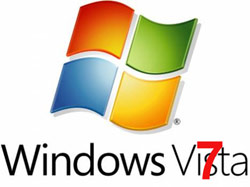One of the things that were not particularly good with previous versions of the Windows operating system was the default fragmenting client – hence all the other free defragmenting applications that performed this task a lot better. Gaming is another issue that people running Windows on their machines, people that will surely leave Vista behind and move on to 7, will be interested in – Windows 7’s gaming performance is promising, keeping in mind that all we had to test was the Beta.
“One of the features that you’ve been pretty clear about (I’ve received over 100 emails on this topic!) is the desire to improve the disk defrag utility in Windows 7. We did. We know there’s a lot of history in defrag and how “back in the day” it was a very significant performance issue and also a big mystery to most people. So many folks came to know that if your machine is slow you had to go through the top-secret defrag process,” say Rajeev Nagar and Matt Garson on Engineering Windows 7.
On of the most annoying things of running the default defragmenting client in Windows Vista was the fact that you never knew what was going on because there were no UI (user interface) elements. With Windows 7 the UI has been brought back, and while it did not exactly receive an extreme makeover, it is nice to actually get more detailed info on the defragmenting process. But wait, there’s more: stopping the process will not have a negative impact on the OS; not that you will have to worry about that because the defragmenting client is set to run automatically (at 1:00 AM by default). One other thing that could not be found in XP and Vista is the ability to defragment multiple volumes at the same time or schedule defragmenting tasks for multiple volumes.
People running Windows 7 on netbooks with SSDs (solid state disks) do not need to defragment them, so the software is disabled by default. As a matter of fact, defragmenting an SSD could have a negative impact on their life span.
Moving on to gaming, recent tests have shown that the Beta version of Windows 7 is very game friendly (as you would expect it to be since it is built on Vista). ExtremeTech tested a total of 22 games both old an brand new ones on Windows 7 Beta and the results showed that most of them ran just fine.
This statement was recently released by the Redmond software manufacturer: “Microsoft will continue to invest in Windows as a first-class gaming platform through great Windows out of box experiences, our online gaming services including Games for Windows Live, MSN Games, and [Windows Live] Messenger games, and through new games for Windows developed by Microsoft Games Studios. Our Windows gaming service efforts will be led by general manager Ron Pessner. Working closely with Ron will be Dave Luehmann, a long time Microsoft games veteran.”
“One of the features that you’ve been pretty clear about (I’ve received over 100 emails on this topic!) is the desire to improve the disk defrag utility in Windows 7. We did. We know there’s a lot of history in defrag and how “back in the day” it was a very significant performance issue and also a big mystery to most people. So many folks came to know that if your machine is slow you had to go through the top-secret defrag process,” say Rajeev Nagar and Matt Garson on Engineering Windows 7.
On of the most annoying things of running the default defragmenting client in Windows Vista was the fact that you never knew what was going on because there were no UI (user interface) elements. With Windows 7 the UI has been brought back, and while it did not exactly receive an extreme makeover, it is nice to actually get more detailed info on the defragmenting process. But wait, there’s more: stopping the process will not have a negative impact on the OS; not that you will have to worry about that because the defragmenting client is set to run automatically (at 1:00 AM by default). One other thing that could not be found in XP and Vista is the ability to defragment multiple volumes at the same time or schedule defragmenting tasks for multiple volumes.
People running Windows 7 on netbooks with SSDs (solid state disks) do not need to defragment them, so the software is disabled by default. As a matter of fact, defragmenting an SSD could have a negative impact on their life span.
Moving on to gaming, recent tests have shown that the Beta version of Windows 7 is very game friendly (as you would expect it to be since it is built on Vista). ExtremeTech tested a total of 22 games both old an brand new ones on Windows 7 Beta and the results showed that most of them ran just fine.
This statement was recently released by the Redmond software manufacturer: “Microsoft will continue to invest in Windows as a first-class gaming platform through great Windows out of box experiences, our online gaming services including Games for Windows Live, MSN Games, and [Windows Live] Messenger games, and through new games for Windows developed by Microsoft Games Studios. Our Windows gaming service efforts will be led by general manager Ron Pessner. Working closely with Ron will be Dave Luehmann, a long time Microsoft games veteran.”

























